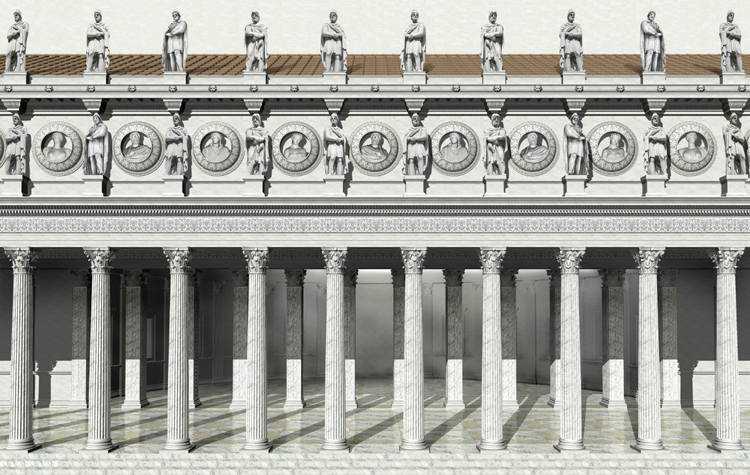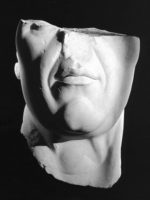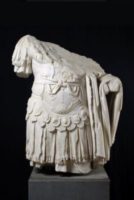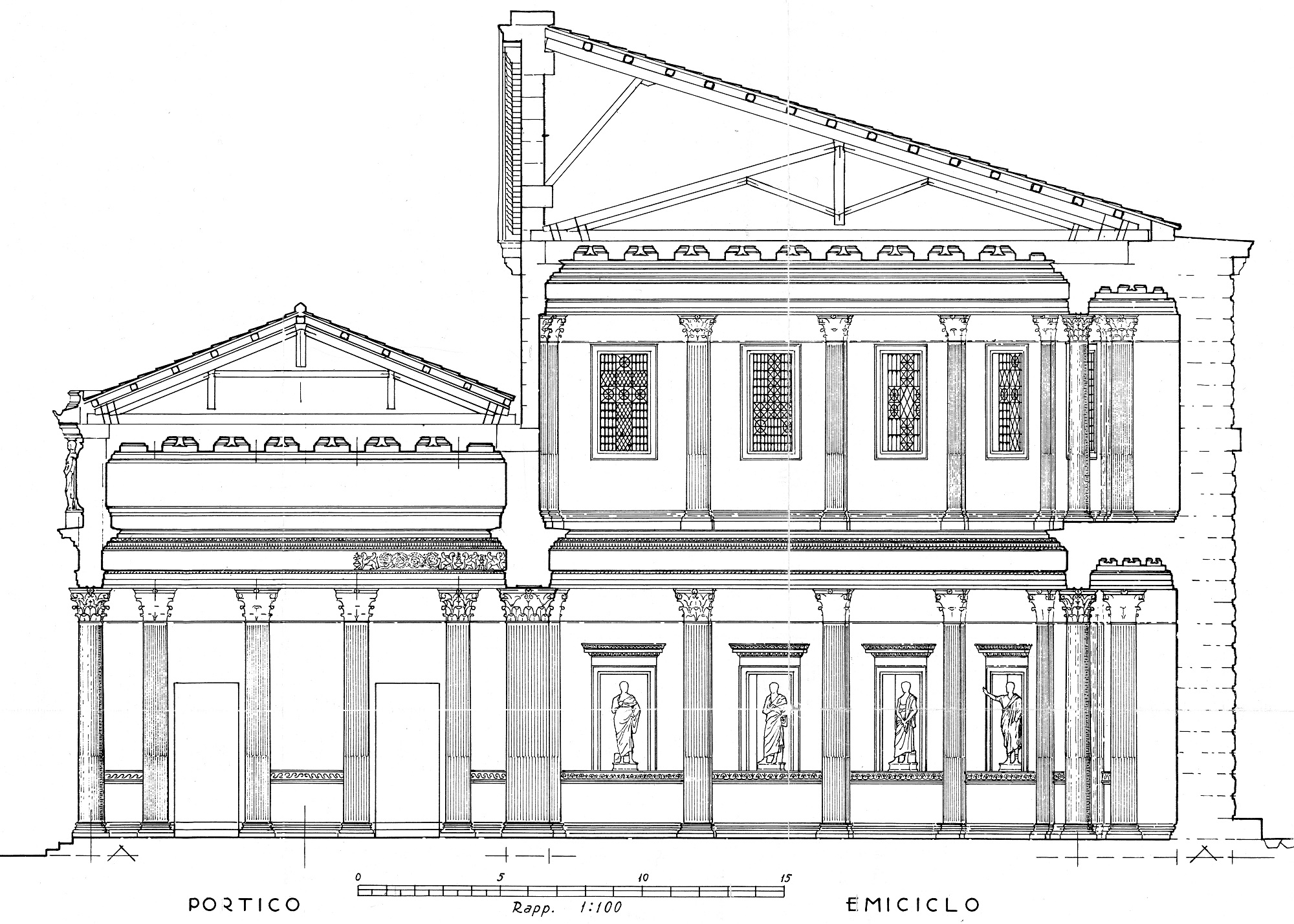The square of the Forum of Trajan was flanked on the long sides by two deep porticoes (15 meters) which opened up to large hemicycles with a diameter of 40 meters. The porticoes façades were supported by fluted Corinthian columns made of Pavonazzetto marble (coming from modern day Turkey and characterized by the typical purple veins against a white background). Above the columns an attic displayed large marble shields (latin: clipei) with portraits alternating with statues representing Dacian captives.


A second row of statues was perhaps placed as acroteria along the top cornice of the porticoes. The statues of Dacians reminded the viewer not only of the two wars fought by Trajan in Dacia (corresponding largerly to the modern Romania) in the years 101-102 A.D. and 105-106 A.D., but also of the exceedingly rich booty that Rome gained from the conquest and that was used to finance the construction of the Forum itself. The large portraits on the clipei depicted members of the imperial family and famous people to ideally expand the portrait gallery displayed in the adjacent Forum of Augustus.

Other colossal white marble statues of famous people were housed in the niches within the two large hemicycles where tribunals were held, similarly to those existing in the Basilica Ulpia and in the Forum of Augustus. The Forum of Trajan was in fact a sort of large palace of justice where law related matters were administered with regards to the whole empire. Sculptures from this area are on display in the Museum of the Imperial Fora.

